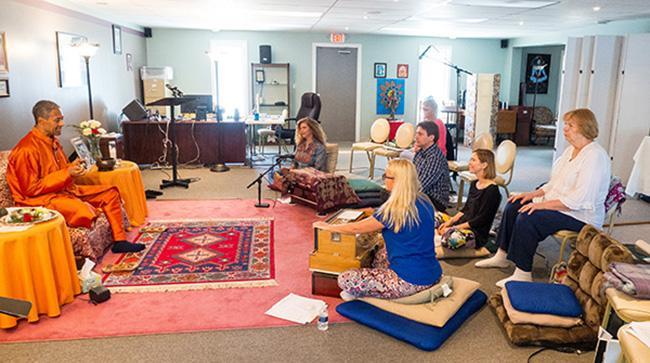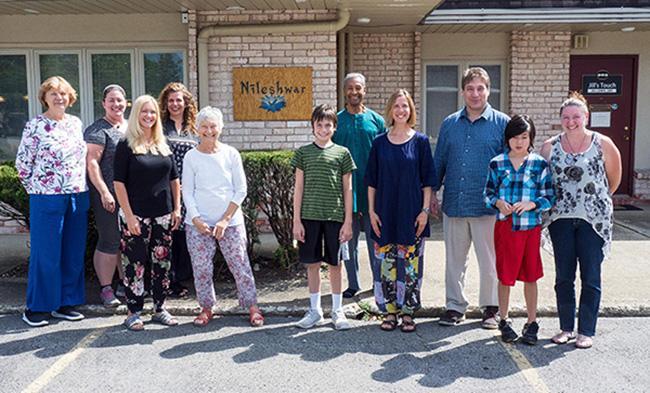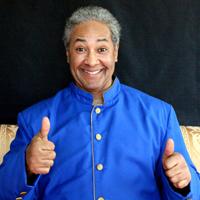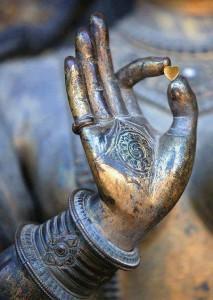

How To Find The Right Spiritual Guru? – Article.
By reading this page you will learn:
- Steps to take to find the right spiritual Guru or spiritual master for you.
- How to test the Guru to determine if that Spiritual Guru Is Authentic.
- Where to begin your search for a Shaktipat Guru.
- Program/Event Schedule.
Wisdom To Well-Being Through
Kedarji’s 4 Pillars of Joy In Daily Living

VIEW OUR OFFERING
Below you will find:
- Public programs offered at our retreat center.
- Public programs offered at other locations in the region.
- Information and schedule for our weekend Shaktipat Blessing Retreats and Weeklong Retreat.
- Live Mini Courses, Online Home Study Courses and Webinars.
SCROLL DOWN TO VIEW ALL INFO
Nityananda Shaktipat Yoga Programs, Events and Worship Offered By Kedarji and staff. **Dates are updated every month at the first of the month.
Events With Kedarji – talk, chanting and meditation
Special Events
In addition, throughout the year we schedule special events to coincide with spiritual holidays and celebrations, including special chanting programs. We lose ourselves in the ecstasy of chanting for several hours or a day at a time.
Request Kedarji Speak At Your College Or University

Retreats
Kedarji’s Shaktipat Blessing
Weekend Shaktipat Meditation Retreats
Our Weeklong Shaktipat Meditation Retreat
Weeklong Shaktipat Meditation Retreat

Live Mini Courses, Online Home Study Courses and Webinars
MINI COURSES
Nityananda Shaktipat Yoga Mini Courses Led By Kedarji & Certified Teaching Staff
ONLINE HOME STUDY COURSES
Nityananda Shaktipat Yoga Home Study
Home Study Program
How to Be Fearless, Happy and Resilient In the Age of Noise and Distractions
Learn How To Become Fearless Now

Transformation With Kedarji’s
4 Pillars of Joy In Daily Living
Above All, From Wisdom, Well-Being. To Be Both Wise and Well Is The Practice and Goal of Our Siddha Science.
The Spiritual Power – Indeed, this is the root of the tree. Then Improved Mental State, Emotional Resilience and Vibrant Health – These are Kedarji’s 4 Pillars of Joy In Daily Living.
How To Find The Right Spiritual Guru?
First, it’s important for you to decide what you want in a spiritual Guru and path. For example, many make the mistake of not examining what they want to experience, what the goal of their seeking is, before looking for a Guru.
End Your Seeking Now
How to find the right Spiritual Guru. Are you seeking spiritual happiness? Do you want permanent spiritual transformation? Are you seeking to attain at state of Joy and Inner Peace? Do you want Self-Realization? So, there are questions you should ask yourself before beginning your search.
Leadership
“A child cannot be born without a father and a mother. Clothes cannot be washed without water. There can be no horseman without a horse. So, without a Master, none can reach the court of the Lord.” ~ The Poet Saint Kabir
Nityananda Shaktipat Yoga
In conclusion, Nityananda Shaktipat Yoga is a multi-faceted curriculum of study in the ancient, time-honored and proved methods for attaining the following. Lasting Inner Peace, true Happiness and the experience of Love that is not dependent on anything and anyone outside yourself. This curriculum was designed by our spiritual leader, Kedarji.
Test The Guru First
How to find the right Spiritual Guru. Most importantly, once you have decided what kind of spiritual transformation you want, then you will need to be led by a competent spiritual Guru. How do you determine if the Guru is competent or not to lead you?
First Test Step
How to find the right Spiritual Guru. Does the Guru have his own Guru whom he/she followed and served over a period of years? This is essential. Therefore, you shouldn’t follow a Guru who has never followed and obeyed his/her own Master’s instruction.
Second Test Step
Is the Guru in a lineage of such beings who have attained what you seek? For example, if you want to attain permanent spiritual transformation and Liberation (God-realization), how can you be led to that attainment by someone who is not in a lineage of such Gurus? So, lineage is very important.
Here’s why. To this end, answer the following questions to yourself. Does the Guru’s behavior, words and mannerism match the understandings given in the utterances of the sacred texts of his/her lineage? In other words, is the Guru’s behavior in alignment with the Masters who have gone before him/her?
Third Test Step
Do you have concrete experiences of spiritual transformation by keeping the company of the Guru and following his/her instruction? Equally important, are these experiences growing and becoming more steady as you follow the Guru’s instruction for daily spiritual practice and spiritual life?
Use the above as the means for testing the Guru before you follow.

